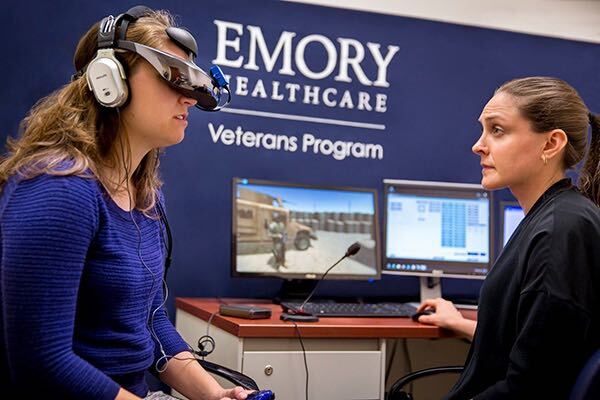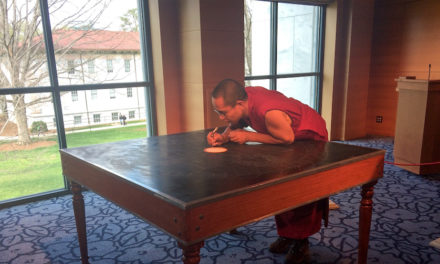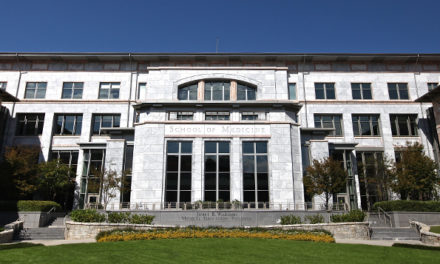Content Warning: This article contains references to sexual assault.
The Wounded Warrior Project (WWP) will invest more than $100 million in the Warrior Care Network, which includes the Emory Healthcare Veterans Program (EHVP). The $100 million will be divided among Emory Healthcare and three other academic medical center partners: Massachusetts General Hospital in Boston, Rush University Medical Center (Ill.) and University of California, Los Angeles Health.
WWP is a nonprofit organization dedicated to helping veterans and active service members with health care concerns, including mental health and brain injury treatment. Started in 2003, the founders strived to help this generation of veterans become “some of the most well-adjusted servicemen and women in our nation’s history,” Warrior Care Network Director Erin Fletcher said.
This is WWP’s third contract with Emory University. The investment will be used to provide free mental health treatment for post-9/11 veterans across the country until September 2026, according to EHVP Director of Projects Jim Ludlam. He said EHVP treats veterans and active duty service members with conditions such as post-traumatic stress disorder (PTSD), mild traumatic brain injury (TBI), substance use disorder, military sexual trauma, anxiety and depression.
“It’s the invisible wounds of service, the mental health aspect of things,” Ludlam said.

Wounded Warrior Project invests over $100 million in veteran health care through Emory. (Courtesy of Emory University)
The Warrior Care Network has a two-week intensive outpatient program (IOP), which averages more than 50 hours of treatment. EHVP Executive Director and Trauma and Anxiety Recovery Program Director Barbara Rothbaum said this is likely equivalent to more than a year of weekly therapy for most patients outside the program.
War veterans with PTSD, a disorder that leads to avoidance of stimuli that remind them of a traumatic event, often also avoid seeking mental health treatment, Rothbaum said, adding that veterans have about a 50% retention rate in traditional therapy. She recalled that one of her patients had difficulty making progress through conventional treatment due to the separation between therapy and her regular life.
“She would drive for an hour, get to a therapy session, be expected to open up to these most painful memories, then close it back and drive for an hour and go back to her life,” Rothbaum said.
However, IOP has a 93% retention rate, Rothbaum said. IOP only requires a patient to seek treatment once, solely focusing on their therapy for two weeks before graduating from the program with a care plan.
“You don’t have to keep doing it every week or every month and starting all over and telling your story all over again every time you have a new provider,” Ludlam said.
All four Warrior Care Network sites offer IOP. The WWP carefully picked these locations prior to the network’s launch in 2015, ensuring that their patients would receive quality and innovative treatment from “the best of the best,” according to Fletcher. Professor in Psychiatry and EHVP Deputy Director Sheila Rauch said that EHVP personalizes each patient’s treatment plan to fit their needs.
“All four of these programs provide evidence-based treatment, the gold standards of care in PTSD and treatment of other invisible wounds of war,” Fletcher said. “They also provide a comprehensive suite of adjunctive services that treat the whole person.”
EHVP noted in their 2023 Impact Report that 75% of IOP patients achieve “clinically significant improvement” in PTSD and depression symptoms, which is 30% greater than traditional weekly programs, Ludlam said. Additionally, TBI patients improve an average of 40% on the Neurobehavioral Symptom Inventory, an assessment for TBI symptoms, according to the report.
Rauch said that she and Rothbaum have been “on the cutting edge of research and advancement” in PTSD and other mental health issues stemming from military service. They are currently working on using repetitive transcranial magnetic stimulation and pharmaceutical-grade MDMA, commonly known as ecstasy, to increase the effects of exposure therapy in IOP patients, Rothbaum added.
“We’re about to start a study where we give the MDMA with the exposure therapy and hope that that also can kind of make the brain more plastic and open to new learning,” Rothbaum said.
Each of the Warrior Care Network sites specializes in specific methods of treatment, with the EHVP focusing on prolonged exposure therapy to fight avoidance behaviors caused by PTSD.
“For instance, a veteran who comes back from Iraq and won’t drive down their street when there’s trash day because it reminds them of the IEDs,” Rauch said. “It’s definitely going to reduce your function in your life because it’s taking those choices away.”
Prolonged exposure therapy urges patients to approach their memories and the accompanying emotions. This may be done by talking through a traumatic memory to help the patient come to “a different understanding of the trauma itself,” according to Rauch.
“People are telling us we’ve saved their lives, we’ve saved their marriage, we gave kids their parents back,” Rothbaum said.
If you or someone you know experienced sexual assault, you can access Emory’s Title IX resources at 404-727-0541 or https://equityandcompliance.emory.edu/title-ix/index.html and the Office of Respect at https://respect.emory.edu/ or their hotline 24/7 at (470) 270-5360. You can reach the RAINN National Sexual Assault hotline 24/7 at (800) 656-4673 or https://hotline.rainn.org/online. You can reach the Atlanta Grady Rape Crisis Center crisis hotline 24/7 at (404) 616-4861 or gradyrapecrisiscenter@gmh.edu and the Decatur Day League Sexual Assault Care and Prevention crisis hotline 24/7 at (404) 377-1428.




